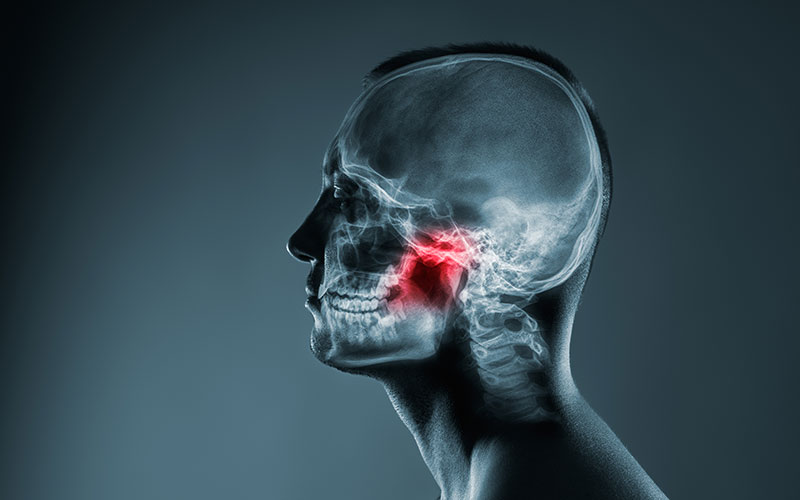The patient starts to feel severe pain and a sense of temporary uncomfortableness that could go on for many years. Women are more likely to experience jaw-joint pain than men, and the average age of having it is between 20-4- years old.
Some of the symptoms are:
Feeling face weakness and pain in the jaw, nick, shoulders, around the ears, when talking, or opening your mouth. This feeling makes you unable to widely open your mouth, and makes you hardly close it. It also makes a cracking sound when you move, open, or close your mouth (Where you may or may not experience pain during).
You get to experience facial pain, and a hardness in chewing or biting which might be the result of having even upper and bottom canines. One of the most common symptoms is swelling at one of your face-profiles, teeth ache, headache, neck pain, dizziness, earache, or hearing problems.
What can reduce jaw-joint pain?
There are number of things that reduces jaw-joint pain, and by just abiding to some of these tips and tricks is enough to make the pain go away:
Using warm or cold compresses: Put ice compresses on your face, and jaw for 10 minutes, then make some stretching excesses to your jaws (Your doctor or physician will guide through it). After the exercise you put a warm towel on your hurting jaw for 5 minutes daily.
Eat soft food: Like mashed potatoes, boiled eggs, fish, fruits, cooked vegetables, beans and grains.
Cut your food into little pieces: And that will help you reduce the time taken to chew your food. Avoid eating hard to chew food, or crunchy food (Such as biscuits, or uncooked carrots).
Avoid widely opening your mouth: When you yawn or chew, make sure you do it carefully (Specially with gums and ice), also avoid violent jaw movements like screaming or singing.
Don’t lean your hand on your chin: And don’t hold your cell phone between your neck and ear, instead use the right posture to avoid nick and face pain.
Wearing a teeth guard in your sleep: It’s a plastic guard that gets attached to your upper teeth to prevent the attachment of both the lower and upper canines together so it reduces the consequences of teeth crushing.
Loosen your jaw muscles: Consult your doctor whether you need a facial message or rubbing. You also need to take into consideration using treatments that fight back anxiety and stress, including Biofeedback.
Having Painkillers: To reduce the pain and swelling; try some anti-inflammatory drugs like aspirin, Ibuprofen (Brufen, Advil, Motrin, Elfin) which do not need prescription. Your doctor also might prescribe bigger doses of other drugs like anesthetic pain relief drugs, or muscle relaxers to help you loosen your jaw muscles.
Moreover, it might be recommended for your condition to have anti-stress, and anti-anxiety drugs to help you reduce the amount of psychological problems that are contributing greatly to your condition. Knowing that any psychological prescription including (Jaw-muscles relaxers, antidepressants, and stress), can only be prescribed by a doctor.


